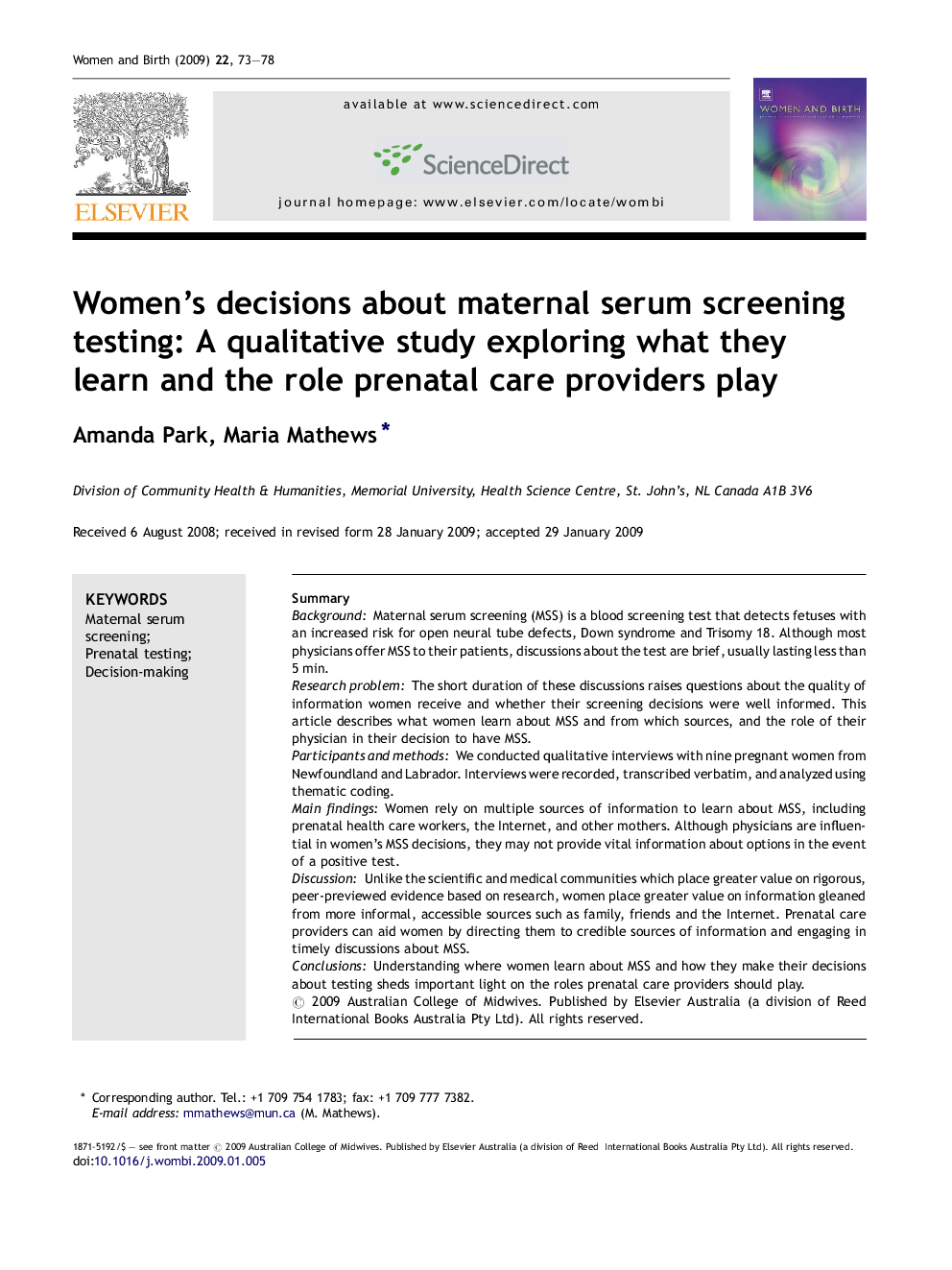| Article ID | Journal | Published Year | Pages | File Type |
|---|---|---|---|---|
| 2636794 | Women and Birth | 2009 | 6 Pages |
SummaryBackgroundMaternal serum screening (MSS) is a blood screening test that detects fetuses with an increased risk for open neural tube defects, Down syndrome and Trisomy 18. Although most physicians offer MSS to their patients, discussions about the test are brief, usually lasting less than 5 min.Research problemThe short duration of these discussions raises questions about the quality of information women receive and whether their screening decisions were well informed. This article describes what women learn about MSS and from which sources, and the role of their physician in their decision to have MSS.Participants and methodsWe conducted qualitative interviews with nine pregnant women from Newfoundland and Labrador. Interviews were recorded, transcribed verbatim, and analyzed using thematic coding.Main findingsWomen rely on multiple sources of information to learn about MSS, including prenatal health care workers, the Internet, and other mothers. Although physicians are influential in women's MSS decisions, they may not provide vital information about options in the event of a positive test.DiscussionUnlike the scientific and medical communities which place greater value on rigorous, peer-previewed evidence based on research, women place greater value on information gleaned from more informal, accessible sources such as family, friends and the Internet. Prenatal care providers can aid women by directing them to credible sources of information and engaging in timely discussions about MSS.ConclusionsUnderstanding where women learn about MSS and how they make their decisions about testing sheds important light on the roles prenatal care providers should play.
